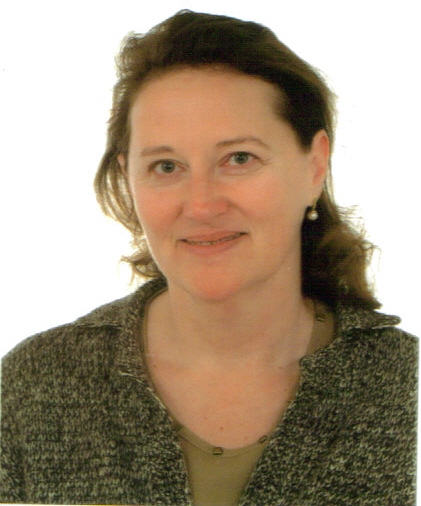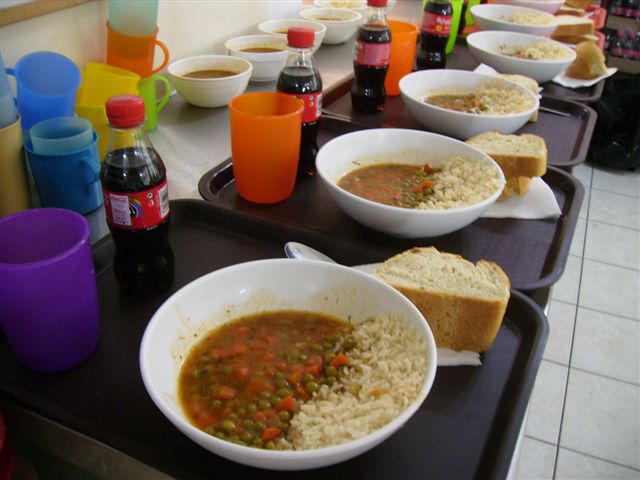Fátima Taboada López
Intern
Although Begoña Castiella studied French Literature and left Spain 33 years ago for love, she is an  expert on Greek culture and politics today.
expert on Greek culture and politics today.
Her first jobs in Athens were at the Spanish Embassy and the Onassis Foundation, the biggest cultural foundation at that time. At some point, one of the major Spanish newspapers, ABC, asked her to work as its correspondent in Greece. The first reason was that the Spanish Queen Sophia was Greek and the second that the two countries were members of the then Common Market. Now Begoña Castiella is one of the most respected foreign correspondents in Greece. Some people in Spain know her from a programme on Spanish state television called Spanish Abroad, which interviewed Spaniards in Athens and was aired in 2009.
Nine years ago, a priest from the Catholic Church in her neighbourhood asked her for some help in a soup kitchen once a week. When she got there for the first time, she felt as if she was back at a  Catholic school of the 1960s. She felt comfortable and decided to stay. Now she is still there, despite her busy schedule, and every Thursday she works as a volunteer and executive member of the board of Caritas Athens - Refugee Programme, a centre for immigrants and refugees, situated near Omonia Square.
Catholic school of the 1960s. She felt comfortable and decided to stay. Now she is still there, despite her busy schedule, and every Thursday she works as a volunteer and executive member of the board of Caritas Athens - Refugee Programme, a centre for immigrants and refugees, situated near Omonia Square.
Caritas is an international organization of the Catholic Church, its mission being to serve the poor and to promote charity and justice throughout the world. In Greece, this philanthropic organization is recognized by the State and many students of Social Studies at universities both in Greece and abroad come to train at its Refugee Centre in Athens. Caritas Athens also organizes several activities such as a blood bank, attention to the elderly and visiting people in prisons. One of Begoña’s tasks is to raise funds and obtain donations for the centre, especially from large private foundations. She admits that people in Athens are very supportive. The organization has 70 volunteers during the week, every day from Monday to Friday, who serve a warm meal to around 250 adults and 60 children, migrants and refugees. Another Catholic soup kitchen is run by the Missionaries of Charity, following Mother Theresa of Calcutta providing a daily meal to 300 people. She says that many immigrants usually become illegal in Greece because they do not have a regular job, which is why many return to their countries of origin, especially Pakistani and Albanian workers and their families. Nevertheless, a lot of people like Sudanese, Afghani and of course, Syrian citizens, still arrive in Athens.
Although Begoña is very active in Caritas, her main occupation is journalism. After many years in Greece, she is familiar with the social and political reality of the country and she has her own opinion about its problems. She affirms that after two months of European presidency there have been no changes in Athens. There are more policemen around the Zappeion Centre and in the centre of the city but people are not aware of the international meetings or events that take place: these are only important to the politicians. She says that the Greeks worry mainly about unemployment and taxes, and fear of a possible bankruptcy. Another important concern is the possibility of early elections in the autumn. The polls indicate a victory for the left coalition SYRIZA and the main problem is that nobody has understood the economical agenda of SYRIZA, except their promise that rich people will pay more taxes. She thinks that if the radicals form a government and refuse to comply with the EU and the IMF, they might have to take money to pay the State expenses from bank deposits when those exceed a certain limit.
Begoña has the feeling that Greek people love Spain: the Queen of Spain is Greek; she knows a lot of Greek people who like to visit Barcelona and think that Spaniards and Greeks are “Brothers suffering the crisis”. The Greeks think the crisis in Spain is the same as in Greece and they are wrong. The reasons were different and the solutions proposed are different too, she says. The measures adopted in Greece have benefited Spain in order to avoid the same mistakes. Most probably, Europeans did not expect the Greek situation to be so hard and difficult. Begoña thinks that if the same problem occurs now in any other country, the authorities will know what to do, which is good.
The fact is that the crisis in Greece started because of too much public expenditure and state corruption at all levels. In her opinion, a lot of people improved their life style. Everyone had benefited of the economic boom and the generous EU financing, but now the situation has changed and many people have to face a new reality and need to reduce drastically their spending.
Begoña thinks that some people agree that they cannot continue to live as they used to and that the solution is higher taxes and cutbacks. However, some others listen to Alexis Tsipras and think that when the crisis is over, the situation of Greece and their life will come back to the situation in 2008, before the crisis. Begoña insists that this is completely wrong. It is not possible to turn back and spend the same money as before. She does not agree with what populist political parties like SYRIZA promise citizens, namely that Greece will be as it was before the crisis. "This economic model does not exist anymore and it will not happen again: Greeks cannot spend money as before, something must change".